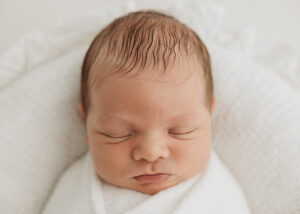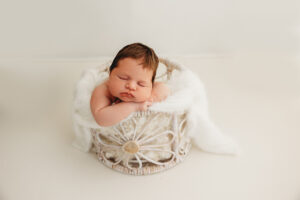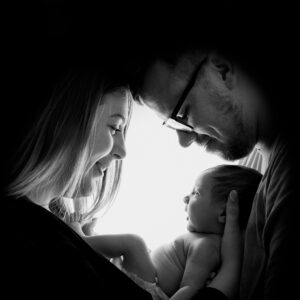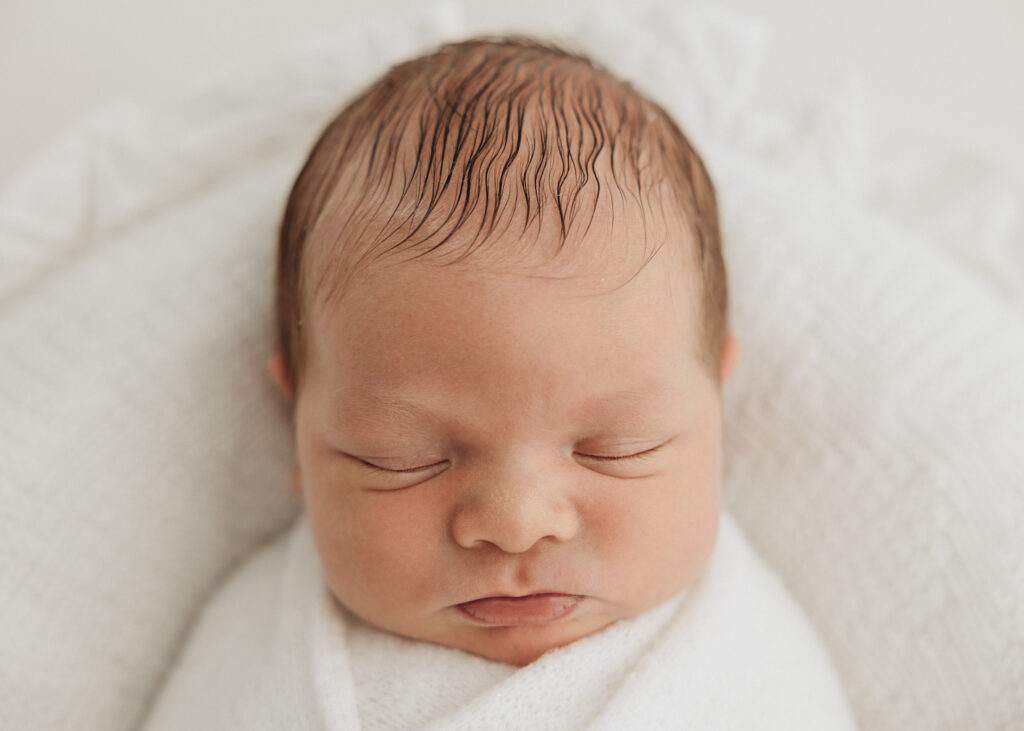Becoming a new parent is a whirlwind of emotions and new experiences, and one aspect that at times can feel challenging for new parents is tackling and understanding their baby’s sleep patterns. From the first moments of life, your baby’s sleep undergoes significant changes throughout its first year as your baby grows and changes quickly.
From the sleepless nights of a newborn to the transition to longer sleep cycles and sleep regressions, coping with your baby’s sleep stages in the first year can be challenging. However, once you understand their developmental needs, getting to grips with their ever-changing sleep patterns gets easier to manage.
In this article, we will take a closer look at the different sleep stages and development milestones your baby experiences during their first year of life. From insights and tips to the reasons behind their sleep patterns, this article will hopefully help you and your child get the rest you need.
Why is sleep so crucial?
Before we can talk about the sleep stages it is good to know why getting enough sleep is so crucial for your baby. When babies sleep children replay all the things they have learned throughout the day, which is important for their physical and mental well-being.
Sleep is also a time when children grow, as the growth hormone is released when they sleep. Therefore it is vital that your child gets the sleep that they need, to restore their energy, grow, and learn.
Newborn Stage (0-3 months)
Sleep stages during first year of baby’s life
Newborns spend a significant portion of their day sleeping and need 14-17 hours every day. A newborn’s sleep largely consists of REM (Rapid Eye Movement) sleep, which is essential for brain development. Newborns grow at a fast rate, compared to any other stage, so, understandably, this stage of their sleep is so crucial.
However, newborns struggle to move from one sleep cycle to another and will often stir or even wake up in between cycles. Newborns also need to feed regularly, especially in the first few weeks, so they will also wake up to be fed, and or changed.
Therefore a newborn’s sleep cycle is short and can typically last around 45 minutes to 3 hours. Which can be difficult to adapt to for new parents. Also, newborns cannot differentiate between day and night and need exposure to natural light to help them establish a sleep pattern.
Tips for aiding a newborn’s sleep:
- Start to establish a regular sleep routine to signal to your baby that it is time to sleep.
- Make the room they sleep in dark, quiet, and at the right temperature. A room thermometer will help you find the ideal temperature.
- Expose your newborn to daylight during the day to help them distinguish between day and night. This could include sitting by a window or taking a walk outside.




Infant Stage (4-6 months)
Once babies are out of the newborn phase, around 4 months, they start to transition to longer sleep cycles. Here your baby will start to consolidate sleep cycles and sleep for longer stretches at night. They will be able to move from one sleep cycle to the next without always waking up in between and they will be able to have longer periods in between feeding.
During this time you will notice that your baby is more alert and active during the day, and the length and or frequency of their naps will get a bit shorter.
Your baby will be having less REM sleep and more non-REM sleep or deep sleep which can mean that they can sleep through the night. However, it is good to remember that all babies are different and have different needs.
Tips for the infant stage:
- Create positive sleep associations by continuing with a regular bedtime routine.
- Be mindful that your baby will be more sensitive to light now and will need a darker room.
Baby Stage (7-12 months) – sleep stages during first year of baby’s life
By the age of 7 months, your baby will be eating solid foods which can have a big impact on their sleep. The introduction of new foods, new experiences, and the impact on their digestive system can mean that babies struggle to sleep during this stage and experience sleep regression.
Some babies may also have their first teeth coming through, which can be a painful and long process. Most babies will also be crawling by 6-7 months and some have learned how to walk by 12 months old. It is an exciting time for you and your baby so be mindful that this stage is going to be difficult and your baby will be taking in a lot of new experiences and sensations.
Tips for the baby stage:
- Ensure that their sleeping environment is safe, especially if they are learning to climb and pull up in their cot.
- If they are teething and pushing a tooth offer pain relief remedies and allow them to sleep longer during naps. You may notice that they have higher temperatures and bowel disruptions, which can both be related to teething. Consult a doctor if you are concerned about their health.
- Be prepared that they may need more soothing at bedtime. Spend time with them doing something quietly before bedtime, such as reading a book or listening to soothing music.
- Continue with the bedtime routine that you established when they were a newborn, which will help them to recognise its time to sleep.
Final thoughts – sleep stages during first year of baby’s life
Understanding your baby’s sleep stages and development during the first year of life can make coping with sleep deprivation and the challenges of parenthood easier. Remember that every baby is different and will require a different approach, which is true between families but also between children in the same household.
Allow both yourself and your baby patience to learn and adapt to your new routines together. By providing a nurturing sleep environment, and maintaining a consistent routine, you can help your baby develop good sleep habits that will benefit them throughout their childhood and beyond.
As you both progress through this journey together, cherish the precious moments, including those sleepless nights, and enjoy the incredible milestones your baby achieves along the way.
Sarah Stellon Photography specialises in newborn photography for families in and around Chelmsford.

